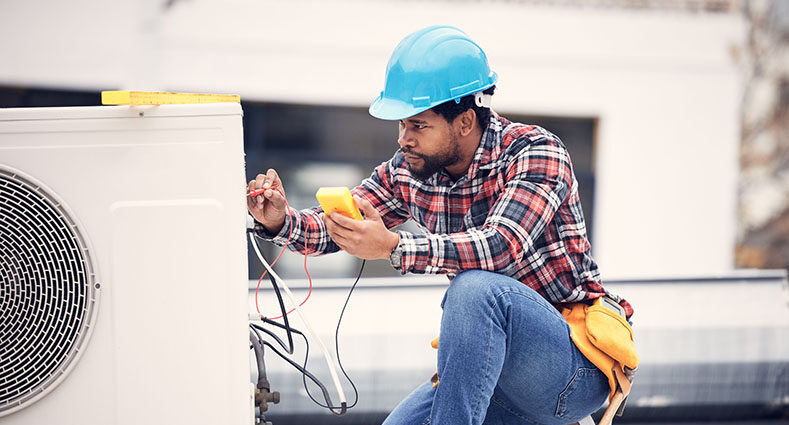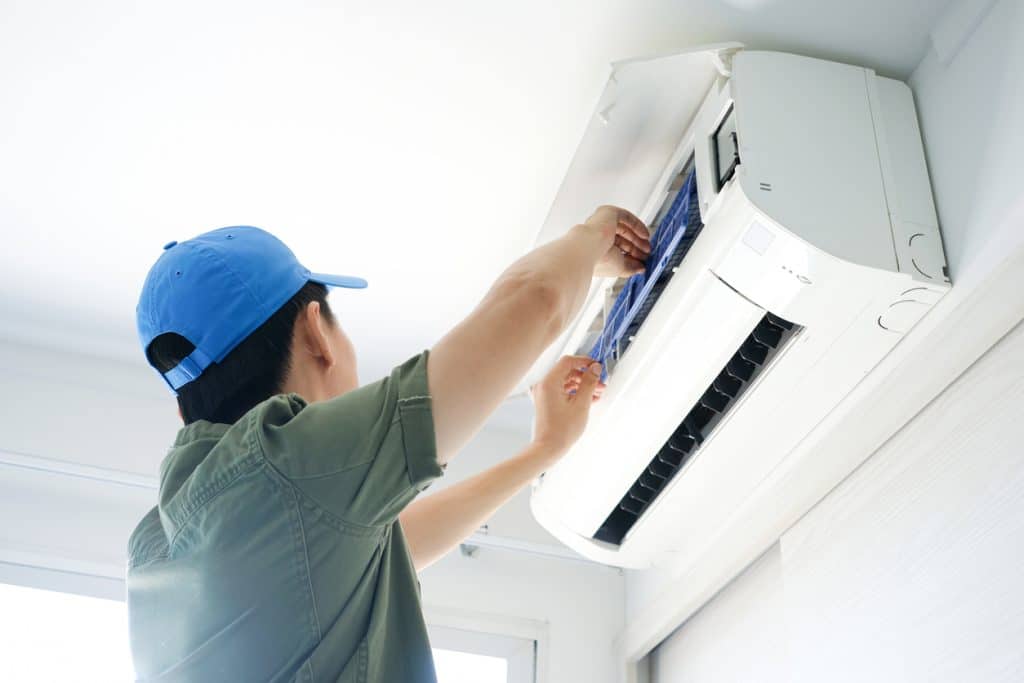The Relevance of HVAC Expertise: Discovering Causes of A/c Problems for House Owners
Homeowners often overlook the significance of recognizing their HVAC systems. Acknowledging common signs of a/c problems can bring about timely treatments. Problems like not enough cooling or unusual sounds are not just inconveniences; they can show deeper issues. By discovering the origin of these issues, property owners can improve system performance and prolong its life-span. What are the most widespread issues that can arise, and how can they be effectively dealt with?
Usual Indications of A/c Issues
How can property owners identify concerns with their a/c systems prior to they rise? Acknowledging typical signs of air conditioner issues is essential for prompt upkeep. One common sign wants air conditioning; if the a/c system stops working to decrease the indoor temperature level, it may signify underlying issues. Unusual sounds, such as grinding or hissing, can likewise suggest mechanical failings or loose elements - AC repairman. In addition, home owners should be careful of weird odors originating from the device, which could suggest mold and mildew growth or electric problems. Frequent cycling on and off, understood as short biking, can suggest thermostat concerns or cooling agent leakages. A boost in power expenses without a matching increase in use might point to inefficiency. By remaining sharp to these indication, house owners can avoid much more significant issues and costly repairs, guaranteeing their a/c systems operate efficiently throughout the warmer months

Comprehending Cooling Agent Issues
Refrigerant problems can greatly impact the effectiveness of a HVAC system. Home owners should understand the indicators of reduced cooling agent degrees and the importance of identifying refrigerant leakages. Attending to these issues without delay can protect against further damages to the system and assurance optimal cooling performance.
Reduced Refrigerant Levels
A typical issue that homeowners may experience with their cooling and heating systems is reduced cooling agent levels, which can significantly impact the system's effectiveness and performance. Refrigerant is essential for the cooling procedure, taking in warm from interior air and releasing it outside. When levels drop, the a/c device struggles to cool the space efficiently, leading to boosted power intake and possible system pressure. Symptoms of reduced cooling agent consist of insufficient cooling, longer run times, and ice formation on the evaporator coils. Home owners might likewise see unusual noises as the compressor functions harder to compensate for the deficiency. It is vital for homeowners to recognize the value of preserving proper refrigerant levels to assure peak cooling and heating efficiency and long life.
Refrigerant Leaks Discovery
Where might a property owner start when confronted with the opportunity of refrigerant leakages in their cooling and heating system? The very first step entails keeping an eye on the system's performance. Signs such as reduced cooling down performance, ice formation on coils, or hissing audios might show a refrigerant leak. House owners must additionally look for noticeable indications of oil residue, typically an indication of a leakage. Using a refrigerant leakage detector can give even more exact recognition. If uncertainties persist, seeking advice from an accredited a/c specialist is crucial, as they have the know-how and equipment to find leakages effectively. Trigger discovery and fixing of cooling agent leaks not only improve system performance yet additionally avoid potential environmental injury, making it a vital element of a/c maintenance.
Electric Failures and Their Impact
Electrical failures can considerably affect HVAC systems, particularly via issues like circuit breaker malfunctions and faulty wiring. These troubles not only interfere with the system's efficiency but can likewise cause expensive repairs and safety dangers. Comprehending the ramifications of such failings is important for property owners to keep an efficient and risk-free heating and cooling setting.
Breaker Issues
Just how can circuit breaker issues impact the efficiency of a heating and cooling system? Breaker act as vital safety tools that handle electrical flow to heating and cooling units. If a circuit breaker trips often, it interferes with power supply, resulting in inconsistent home heating or cooling. This can trigger considerable pressure on the system, leading to ineffective procedure and potential damage to components. Home owners may see boosted power expenses as a result of the heating and cooling system's battle to keep preferred temperatures. In addition, duplicated disturbances from tripped breakers can shorten the lifespan of the air conditioning unit, calling for expensive repairs or replacements. Routine maintenance of circuit breakers is important, as it guarantees a stable power supply, inevitably improving the general performance of the cooling and heating system.
Faulty Wiring Outcome
Regularly overlooked, damaged wiring can have dire consequences for HVAC systems. Circuitry concerns might bring about brief circuits, causing regular malfunctions and raised repair expenses. In enhancement, improper circuitry can create inefficient power use, causing higher energy costs and strain on the system. In severe instances, damaged wiring can cause electric fires, posturing a significant safety danger to property owners. These electrical failings can damage Heating and cooling parts, resulting in expensive substitutes or substantial repair services. House owners should Check Out Your URL focus on normal evaluations by certified professionals to recognize and correct electrical wiring troubles prior to they intensify. Understanding the effects of defective wiring can assist ensure the durability and security of cooling and heating systems, inevitably safeguarding both the home and its residents.
Clogged Filters and Their Repercussions
While several property owners may ignore the value of routine filter upkeep, blocked filters can bring about considerable repercussions for cooling and heating systems. When filters become blocked with dirt, dirt, and debris, air flow is restricted. This decrease in airflow forces the system to work harder, leading to enhanced energy usage and possibly higher utility costs. With time, this stress can create deterioration on parts, leading to early system failure.
Additionally, clogged up filters can jeopardize interior air quality. Toxins and irritants may distribute throughout the home, worsening respiratory concerns and allergic reactions for occupants. Moreover, inadequate air movement can create the evaporator coil to ice up, bring about pricey fixings and ineffective cooling performance. Regularly transforming or cleaning filters is a straightforward yet essential maintenance job that can assist ensure the long life and efficiency of heating and cooling systems, ultimately profiting both the property owner's convenience and their funds.

Thermostat Malfunctions Discussed
What happens when a thermostat malfunctions can significantly influence both comfort and energy efficiency in a home (HVAC company). A damaged thermostat might fail to accurately review the temperature, causing overcooling or insufficient cooling. This inconsistency can cause pain for passengers and result in greater power expenses, as the a/c system functions harder than necessary
Usual concerns include dead batteries, which can render digital thermostats defective, and loose circuitry that disrupts communication between the thermostat and the a/c unit. Additionally, obsolete or badly adjusted thermostats might not respond correctly to temperature changes, further exacerbating energy ineffectiveness.
House owners must be alert for indications of malfunction, such as irregular temperatures or unexpected energy expenses. Routine checks and understanding of the thermostat's functionality can help determine troubles early, guaranteeing peak performance of the cooling and heating system. Attending to thermostat concerns quickly is crucial for maintaining a comfortable living environment and handling power usage efficiently.
The Duty of Routine Maintenance
Regular maintenance plays an essential function in making sure the long life and performance of HVAC systems. Homeowners that prioritize routine checks can prevent small concerns from view it intensifying right into pricey repairs. Regular maintenance commonly consists of jobs such as cleansing filters, examining ductwork, and inspecting cooling agent degrees. These activities aid keep excellent airflow and system performance, minimizing power intake.
A properly maintained Cooling and heating system runs extra successfully, giving constant comfort throughout the home. Normal tune-ups can additionally expand the life-span of the system, bring about significant financial savings over time. House owners are motivated to arrange professional assessments at the very least annually to recognize prospective issues early.
On top of that, numerous manufacturers need routine maintenance to maintain guarantees, making this method not only beneficial yet typically required. Generally, recognizing the relevance of routine upkeep equips homeowners to secure their heating and cooling systems versus unexpected failures and improve their financial investment in home convenience.
Regularly Asked Inquiries
Exactly How Can I Enhance My A/c's Energy Effectiveness?
Improving an AC's energy performance entails normal upkeep, cleaning or replacing filters, securing ductwork, making certain proper insulation, making use of programmable thermostats, and scheduling professional assessments to identify and rectify possible problems influencing efficiency.
What Is the Lifespan of a Typical Cooling Unit?
A regular cooling unit has a life-span of 15 to 20 years, relying on maintenance, use, and environmental elements. Regular upkeep can significantly extend its functional life and enhance general performance.
When Should I Replace My Air Conditioning System?
An a/c system need to usually be replaced every 10 to 15 years. Indications for substitute consist of regular repair work, climbing energy bills, and inadequate cooling, suggesting that an upgrade may be a lot more cost-effective and efficient.
Can I Fix Air Conditioner Problems Myself?
Yes, people can troubleshoot a/c troubles themselves by inspecting filters, making sure power supply, and checking for visible concerns (air conditioner repair). Complicated issues usually need expert help for exact medical diagnosis and secure fixing, making certain perfect system performance.
How Do I Pick a Trustworthy HVAC Technician?

To select a trusted HVAC professional, one must look for suggestions, examine on the internet reviews, confirm pop over to this web-site licenses and insurance policy, evaluate experience, and request in-depth quotes to assure top quality solution and fair prices prior to choosing.
Conclusion
To summarize, a strong understanding of cooling and heating systems enables house owners to successfully identify and address usual a/c problems. Recognizing signs such as inadequate cooling or rising power expenses enables timely treatments, which can considerably enhance system efficiency and long life. By remaining notified about prospective troubles like cooling agent leakages, electrical failings, and clogged up filters, home owners can take positive steps to preserve their systems, eventually making certain convenience and promoting a healthier living setting. Regular upkeep remains crucial to this undertaking.